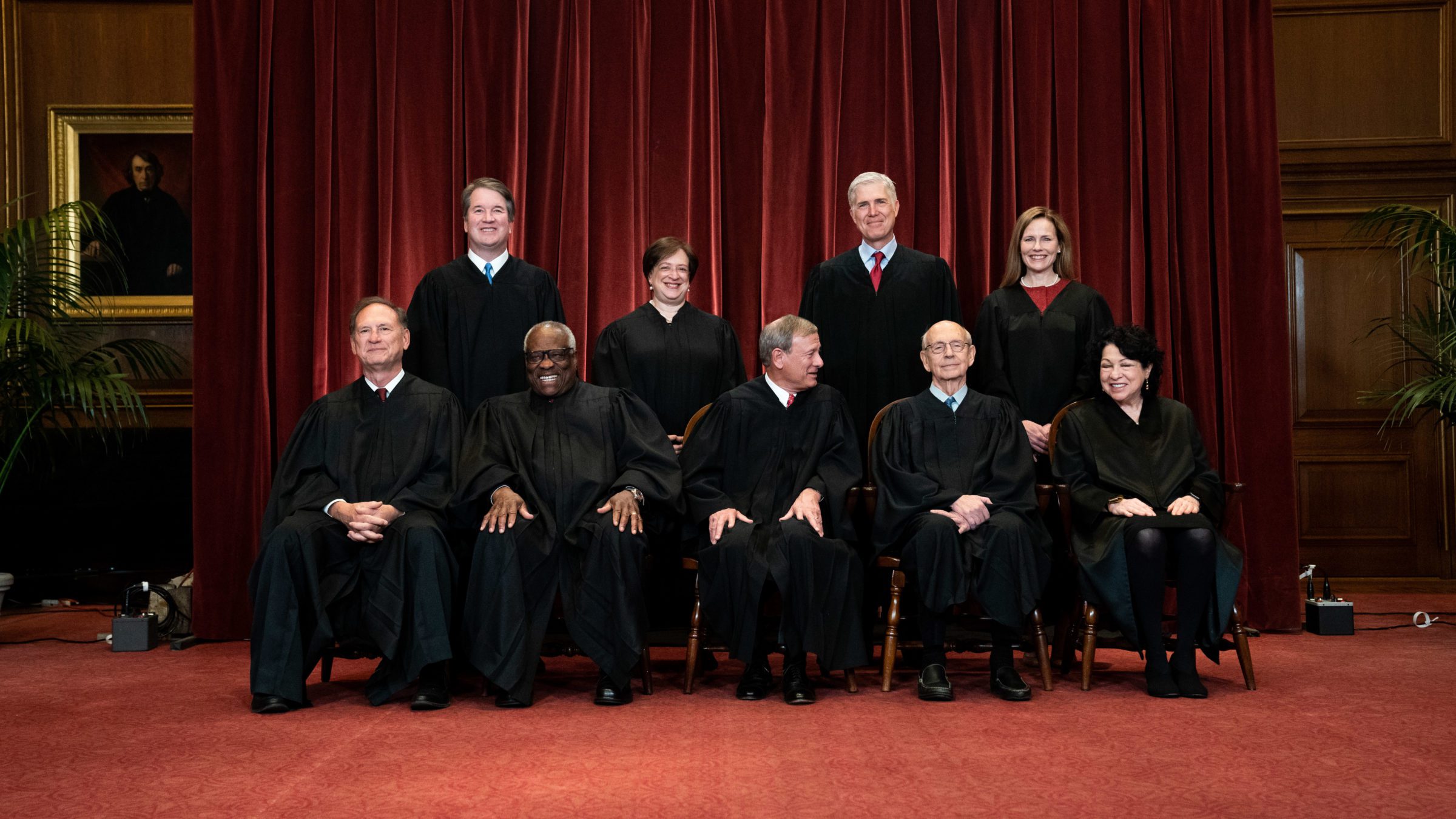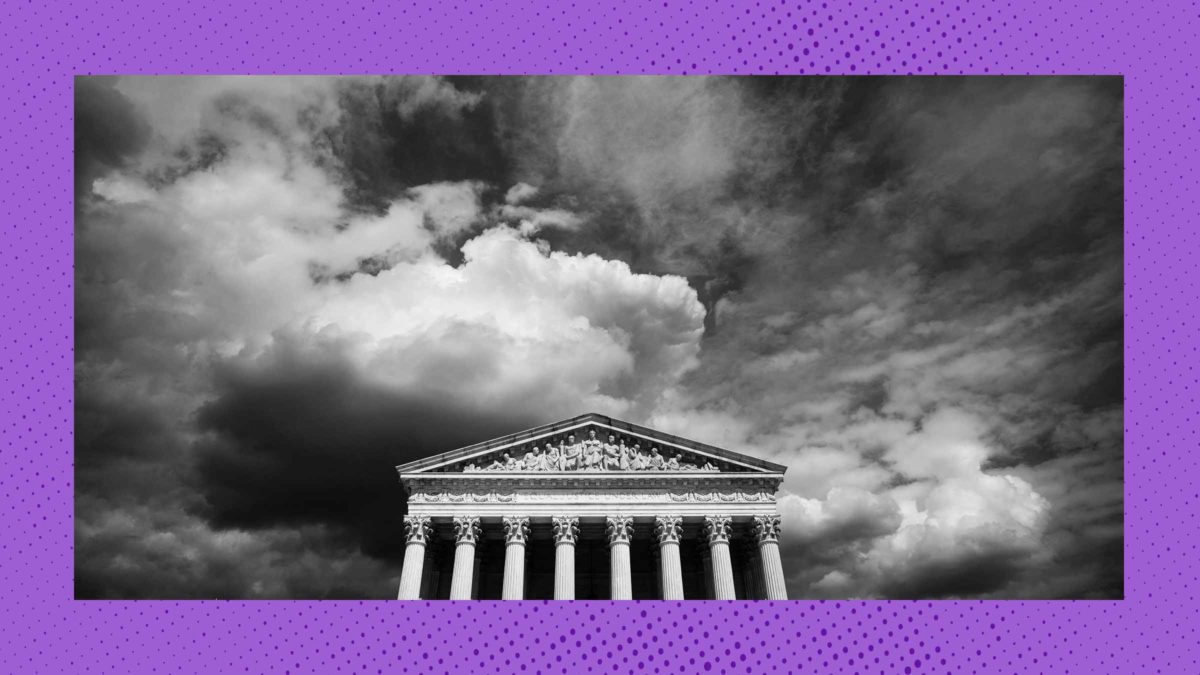Pankajkumar Patel’s bad luck began with a paperwork mistake. His Georgia driver’s license renewal application—the kind of boring, straightforward form he’d filled out countless times without incident—asked if he was a U.S. citizen. When he filled one out in 2008, Patel checked “yes.”
At the time, Patel, a native of India, had lived in Georgia for some 15 years. He’d entered the United States without inspection in 1992, but the work visa he’d since obtained with his employer’s help allowed him to apply to become a legal permanent resident. His wife, Jyotsnaben, and two of his three sons were also part of that pending application, hopeful it would at last take the family out of the legal gray zone in which they’d lived for years.
Eventually, his sons would marry U.S. citizens and become legal permanent residents as a result. Patel and his wife, however, remained in legal limbo as their green card application wound its way through America’s draconian immigration system and, now, all the way to the U.S. Supreme Court.
If Georgia didn’t employ cops for the specific purpose of investigating nefarious driver licensing-adjacent crimes, Patel’s petition would likely have been approved long ago and without incident. After an interview with investigators at the Georgia Department of Driver Services, however, he was charged with false representation, a low-level offense under state law, for purportedly misrepresenting his citizenship status. And although the charge was eventually dismissed, the record it generated would haunt Patel: In 2010, an immigration official determined that he—and by extension his wife and sons included in the application—was inadmissible to the United States. Because he had lied to obtain a government benefit, the official decided, he was automatically ineligible for discretionary relief.
Two years later, the Department of Homeland Security placed them into deportation proceedings, and an immigration judge approved the government’s request to deport Patel and his family to India.
Each of Patel’s subsequent appeals fell on deaf ears. The Board of Immigration Appeals (BIA), the body tasked with reviewing immigration court decisions, affirmed the immigration judge’s ruling without blinking. When Patel appealed his case to the Eleventh Circuit Court of Appeals, hoping a federal judge would listen where the immigration judge did not, the Eleventh Circuit court washed its hands of the matter, asserting that federal courts had no jurisdiction to review mistakes like this one.
On Monday, the Supreme Court will hear oral argument in Patel v. Garland to decide, as it so often does, a very dry, technical-sounding question: whether the language of Section 1252(a)(2)(B)(i) of the Immigration and Naturalization Act allows federal judges the authority to review the determinations of immigration officials in cases like this one. In the process, the Court will decide whether a stray checked box is enough reason to exclude Pankajkumar Patel from a country where he’s lived for three decades.

Photo by Erin Schaff-Pool/Getty Images
At his deportation hearing, Patel tried to clear up what he must have assumed would be a simple, innocent misunderstanding. First, he explained to the immigration judge that under Georgia law, his work permit allowed him to get a driver’s license—no citizenship necessary. The immigration judge, however, did not believe that someone who was not a citizen or legal permanent resident could qualify for a driver’s license, and refused to consider the Georgia law Patel was referring to. At one point, he asserted that he was “familiar with Georgia enough” to not need to look at what the law actually said.
Based on this same objectively incorrect premise, the immigration judge concluded that Patel must have intentionally lied about his status as a citizen. The alternative, that a state might provide a driver’s license to an immigrant like Patel, was apparently unthinkable.
It’s difficult to square with reality the idea that Patel was running some kind of intentional scam while filling out his driver license renewal form. Patel has consistently testified that he checked the citizenship box by accident. He was acutely aware of his status as a non-citizen, and of the stakes if his application for legal permanent residence were denied: being separated from his children, and deportation to a country in which he and his wife hadn’t lived for 30 years. Patel had nothing to gain from lying about his citizenship, and stood to lose everything if he did.
Unfortunately, this mattered very little to the decision-makers in immigration court, which is less a “court” and more akin to a glorified legal drama. The immigration judges who hear cases like Patel’s are not the life-tenured, Senate-confirmed federal judges with which most people are familiar. And although an immigration courtroom has all of the trappings of legal process—a judge in black robes and an elevated desk overseeing two sides arguing—an immigration courtroom is not a neutral forum in any meaningful sense. Instead, immigration court is housed in the executive branch, and its judges are appointed by the attorney general—the same attorney general who oversees the prosecutors working to deport people. In immigration court, in other words, the judge and the prosecutor answer to the same boss.
One immigration judge described her experience in immigration court as “nightmarish,” which leaves room for imagining what the people pleading their cases before her thought of it.
The immigration judge and prosecutor also face the same awful workload: Currently, around 500 immigration judges face a backlog of over 1.4 million cases that need to be decided. In a friend of the court brief filed in support of Patel, a group of former immigration judges recount their experiences operating under intense time pressures, overpacked dockets, and limited resources. One judge described her experience in immigration court as “nightmarish,” which leaves room for imagining what the people pleading their cases before her thought of the ordeal.
What all this means is that immigration prosecutors and judges are under tremendous pressure to argue and decide cases quickly, regardless of whatever mistakes ensue. Cases that involve nuance or complexities are ripe for mistakes, simply because immigration judges don’t have the time or the resources to properly consider it all. In the Wild West of immigration law, where life and death decisions are made as flippantly as if participants were in traffic court, what the law says matters less than how much time and patience the immigration judge has on that particular day, and for that particular case.
Immigration advocates have submitted briefs in Patel v. Garland that recount the stories of more people who, like Patel, were denied judicial review of terrible agency decisions. The brief submitted by the American Immigration Lawyers Association, for example, emphasized that danger to domestic abuse survivors posed by the Eleventh Circuit’s ruling, showcasing some of the worst immigration judge decisions that beg for judicial review: In one case, a judge found a woman ineligible for a type of relief carved out for survivors of domestic violence because he did not believe her testimony about marital rape. In a perhaps-unexpected instance of shared perspective, immigration advocates and the immigration judges formerly tasked with deporting their clients agree that federal judicial review is badly needed.
Harsh consequences for mundane mistakes are common in the U.S. immigration system, which almost never extends the benefit of the doubt to those caught within it. Patel’s request is a simple one: that a federal judge—someone who is not beholden to the same attorney general tasked with deporting him—should be able to review the life-and-death decisions that immigration officials make every day in immigration court.
Unless the Supreme Court intervenes, Patel and his wife will be deported, separated from their children, and ineligible for any type of legal entry into the U.S. thereafter—an unthinkable punishment for a paperwork goof. Thousands of immigrants like Patel will be locked out of court, forced to pay for the haphazard mistakes of harried immigration officials who will face no consequences.

